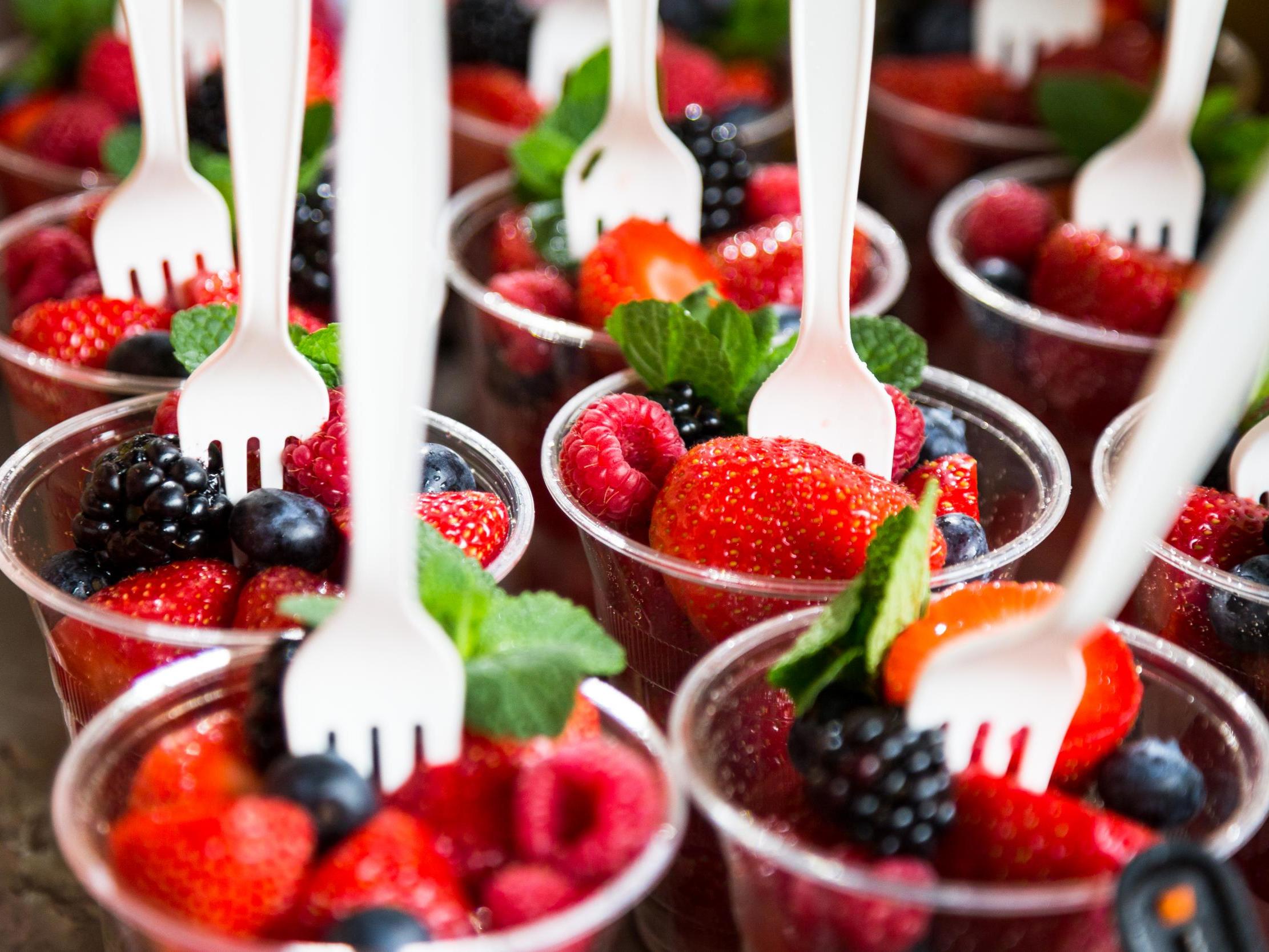Plastic cutlery and plates may be banned in UK in drive to halt oceans pollution
Environment chiefs offer £19,000 for study of economic and environmental effects of outlawing sale of damaging items

Your support helps us to tell the story
From reproductive rights to climate change to Big Tech, The Independent is on the ground when the story is developing. Whether it's investigating the financials of Elon Musk's pro-Trump PAC or producing our latest documentary, 'The A Word', which shines a light on the American women fighting for reproductive rights, we know how important it is to parse out the facts from the messaging.
At such a critical moment in US history, we need reporters on the ground. Your donation allows us to keep sending journalists to speak to both sides of the story.
The Independent is trusted by Americans across the entire political spectrum. And unlike many other quality news outlets, we choose not to lock Americans out of our reporting and analysis with paywalls. We believe quality journalism should be available to everyone, paid for by those who can afford it.
Your support makes all the difference.Plastic cutlery and plates could be among items banned in Britain as the government looks at ways to stem the tide of synthetic waste polluting the seas.
Environment chiefs are offering a £19,000 contract to experts to assess the economic, social and environmental effects of outlawing their sale, together with straws and plastic balloon sticks.
It comes five weeks after the European Commission announced plans to ban single-use cutlery, plates, straws, cotton buds, drink-stirrers and balloon sticks by 2021 under a new drive to reduce marine pollution.
The commission is proposing a ban on 10 products that, together with discarded plastic fishing gear, account for 70 per cent of all marine litter.
Critics have previously said the UK is “shamefully lagging behind” France when it comes to government action on plastic knives, forks, spoons, plates and cups.
In 2016, France became the first country to outlaw such items, although the law will not come into effect until 2020.
The new contract announced by the Department for Environment, Food and Rural Affairs (Defra) states: “Single-use plastics, including plastic plates, plastic cutlery and plastic balloon sticks may have significant negative impacts on the general environment when they are discarded after use.
“The government wishes to assess what the economic impacts of introducing regulations banning these items in England would be and weighing these impacts against the resultant environmental benefits.”
Suppliers, who have until Friday to bid, will be asked to look at “the impact on businesses, both domestic manufacturers and those that either use or sell them, including imported plastics; and the costs of using alternative materials for these products”.
Evidence of the damage caused by plastic is undisputed. Campaign group Plastic Oceans Foundation says humans are now producing 150m tons of single-use plastic every year, more than 8m of which are dumped into the sea. Half of all plastic is used just once before being thrown away.
And more than five trillion pieces of plastic – largely derived from food and drink packaging as well as clothing – are floating in the world’s oceans, damaging every part of the food chain, according to international research published in journal PLOS One in 2014.
Last month, scientists from the University of Hull and Brunel University London found that microplastics consumption by people eating seafood in the UK was likely to be “common and widespread”.
European officials want to create a market for recycled plastics and prompt investment in new types of packaging.
Defra’s 25-year environment strategy announced in January identified a target of “eliminating all avoidable plastic waste by 2042”, and ran a consultation from March to May on tackling the use of all disposable plastic items.
The submissions are being analysed now and will influence proposals due to be published later this year, a Defra spokesman told The Independent.
Ministers have not acted on calls by MPs on the Defra committee for a 25p “latte levy” to be added to all disposable coffee cups that contain plastic, with the revenue going towards improving recycling facilities.
However, they do intend to ban plastic straws, drink-stirrers and plastic-stemmed cotton buds, and are consulting on the introduction of a deposit-return scheme for single-use bottles.
Nearly 20,000 people have signed a petition calling for the UK to follow France and ban non-compostable plastic items. It says: “In doing so we will be promoting a ‘circular economy’ of waste disposal, from product design to recycling”.
The petition points out: “Aside from ecosystem disruption, millions of barrels of oil are used every year in manufacturing plastic bags and utensils, playing what environmental activists call a significant role in climate change.”
Last month Network Rail announced it will ban retailers from supplying plastic cutlery and cups in stations from 2020, as well as setting up a coffee-cup recycling scheme and expanding coffee-grounds recycling in station coffee shops.
In response to the new research contract, WWF's head of marine, Dr Lyndsey Dodds said: “Our throwaway culture has to end. Plastic is choking our oceans and overwhelming wildlife. And it’s only getting worse as the amount of plastic the UK throws away is set to rocket by over a million tonnes by 2030 if nothing is done.
"The UK government must act by banning avoidable single-use plastic by 2025, including difficult-to-recycle items such as black plastic.
"We also need to see industry step up by taking responsibility for packaging for its entire lifecycle – including the costs of recycling and litter.”
Join our commenting forum
Join thought-provoking conversations, follow other Independent readers and see their replies
Comments